|
People ask me, “what was it like losing 70lbs?” Freeing? Empowering? Eye-opening? Life-changing? None of the above. It’s anti-climactic, kinda boring and the easiest part of the journey. You may not even want to do it, because next up is the hard work: maintenance. You’ve heard the saying, “careful what you wish for; you just might get it.” In the same way, in fitness you may not actually want what you think you want. Losing fat and gaining muscle are the two easiest things you’ll ever do in your life. They are intrinsic to life. You do them both every single day. You’ve done them. The quantities of change vary and may have never been what you “wanted;” but the fact remains that you can and have changed both. Maintenance inherently is another game altogether. It’s elusive. Holding your ground is the real task. Thanks to entropy even maintenance is a progression. So do you really want the costs involved in that goal? Think about it this way: do you really want your goal if it means you will be living a different life? You may think so now. Consider the future wisely. You may get your wish. And then what? You see, there is this very simple and incontestable fact: you cannot have it all. You cannot live the way you currently live and obtain the body and health of someone who doesn’t live the way you live. Some people wrap their heads around this for the transformation. “Obviously,” you might say to yourself, “I will have to make lifestyle changes to alter my health and fitness.” Yet what people are generally not acknowledging is the aftermath. Once you lose the weight, gain the muscle, improve cardiac function, enhance mobility… then what? Maintenance doesn’t have to look like what it took to get there. Nonetheless, it does have to look more like what it took to get there than it looks like what you were doing beforehand. Everyone has already grown a lot of muscle and lost a lot of fat. You once were a zygote. So, even the skinniest waif out there has done some serious mass gaining. You once had growth spurts in height. So, you’ve experience precipitous drops in BMI. The average American has had bouts of weight loss here and there. We are turning over cells daily. So, you’ve undoubtedly emptied or killed numerous fat cells (unfortunately only to replenish them). But on average Americans keep gaining 5-10 pounds of fat and losing 1-5 pounds of lean tissue every 5 years after age 25. Change is a given. Maintenance is the bugbear. 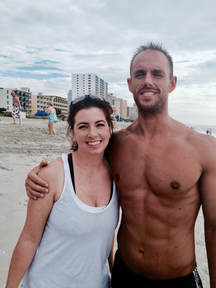 Take it from me, maintenance is a road you may not actually want. As a full-grown adult (pictured on the right at around 160lbs) I proceeded to gain over 120lbs at my peak (pictured in the header photo on left at almost 290lbs) and subsequently lost 70lbs of fat. Both required work. But maintaining that change is the only part that was ever really challenging. This calls into question whether I ever really desired the goal itself. YOU CAN’T HAVE IT BOTH WAYS: YOU CANNOT LIVE THE WAY YOU LIVE AND ALSO OBTAIN THE BODY OF SOMEONE WHO DOESN’T LIVE THE WAY YOU LIVE When I eat 4-5lbs of meat per day, I carry an abnormally high amount of muscle. I’ve pushed the 265-300lb mark a few times. But eating 5lbs of meat (or the 8lbs of plant matter it would take to equate to that protein intake) daily, day in and day out, year after year, as a maintenance program is not something remotely appealing. I did not know that beforehand. It was a lesson I could only get from being that big and eating to sustain all that mass. On the flip side, I’ve been down around 4-6% body fat at 205-230lbs several times. When I am, I have to practice a nutritional intake which includes modest (when around 205lbs bodyweight) to high (when around 230lbs bodyweight) protein, very high fat and extremely restricted carbohydrates. This also is not something i have any interest in doing all the time. When you envision where it is you want to be for maintenance, you need to take into account how you want to live. You don’t just get to have certain physiques or performance capacities in a vacuum. They are products of a specific lifestyle. Determine the lifestyle you can truly envision. It most likely does not dovetail with the body or athleticism you want. And if you would humor me for a moment, I would argue that that means you don’t actually want that body or capability. For that very reason, a high level physique competitor client of mine, in response to onlookers telling her, “I wish I had your arms,” she has repeatedly said, “no - no you don’t.” Those arms require a level of effort you simply don’t want. Ergo, you don’t want those arms. Consequently you have to ask yourself, “what am I genuinely willing to do differently?” Knowing full well that right this moment you are in a familiar, comfortable program whose results you don’t like, ask yourself, “how much WILL I do to change this?” I’m not talking about trying. I’m not talking about what sounds good or sufficient. What WILL you do that is different than what you currently do? What you WILL do differently either is sufficient to move the needle or not. If not, then it ought to provide a launch point from which you can move the needle. And if it moves the needle all the way to “those arms,” then (and only then) did you prove you wanted those arms. I enjoy fasted mornings. They are easy. And they make staying relatively lean extremely stupid-easy. I can’t get the leanest or most muscular I’ve ever been doing this. But I perform better emotionally and mentally when I keep food out of the morning and/or carbohydrates out of the morning and midday. This enables me to be very productive. And I have begun to realize this is how I prefer to live. Therefore, if that’s how I prefer to live, I have to acknowledge that I prefer to not be a 300lb lifter or constantly super lean. I thought I wanted those things. But technically I don’t. Maybe again one day they'll appeal to me. Right now I’m enjoying how I live. And that’s an odd place to be: satisfied, even elated, with where one is. Sounds like maintenance, doesn’t it?
Losing 70lbs is like any other fitness goal or anything anybody accomplishes in life. You don’t get to just want the product. You have to want everything that comes along with it. You have to want the discipline. You have to love the discomfort. You have to yearn for the effort involved. If you don’t accept the means, you don’t want the ends. That’s why in this moment, right now, today you may very well not want to lose weight even when you say you do.
0 Comments
Which is best? Ornish, Atkins, Standard Keto, Paleo, Low-fat, Low-carb, Ezren, Whole Food, Mediterranean, Vegan, IIFYM or Flexible, IF (Intermittent Fasting), 5/2, CKD (Cyclical Ketogenic DIet), Eat to Live, Juicing, Carb Cycling, Carb Backloading, High Protein, Low Protein, High Fiber, Resistant Starch, Bulletproof, Primal Blueprint, Condensed Eating, Density-Focused, FODMAPS-avoidant, Gluten Free, Dairy Free, Chek Protocol, Blood Type-Directed, Entomophagy, Soylent, Weight Watchers, Seattle Sutton, Jenny Craig, Blue Apron, Whole 30, Cayenne Lemon Cleanse, The Four Hour Body Slow Carb Guidelines, Elimination Diets, Anti-Inflammatory Diet, The Alkaline Diet, Dr. Oz’s latest hype? Or the other 1,000 names which have been marketed and rebranded under somebody’s company?
Like the words “religion” and “politics,” the word “diet” has gathered some interesting but unwarranted negative connotations wholly disconnected from its original or even historically consistent meaning. This has reached a point where I now frequently hear people say, “well, I’m not going to ‘diet’; it’s just got to be a way of life.” I hate to break it to you. “Diet” means “a way of life.” Everyone is on a diet. You are always on a diet. You are never off of a diet. But you are either practicing your diet with intention and maturity or you are not. That is, you have either grown up to the point of having premeditated direction in your life, or you have trained your brain to tolerate an undirected series of amorphous chaotic emotional responses as your leader and CEO of your existence. To this point, I think we can all recognize how the popular diet brands which use gimmicks and jargon to help dieters avoid this very intentionality are definitionally and inherently incapable of creating longterm change. Frankly, longterm statistics are bleak (http://newsroom.ucla.edu/releases/Dieting-Does-Not-Work-UCLA-Researchers-7832). The more effective a diet seems at the beginning, the worse it performs thereafter (http://www.elev8wellness.com/wellblog_best_nutrition_training_coaching_experts/why-imposed-extreme-rapid-weight-loss-always-fails-and-what-to-do-about-it). Let’s say you determine an eating worldview you think is beneficial, like, say, vegetarianism. Is veganism better yet? If so, is raw better? Is a processed macadamia nut butter cheese still raw-whole-food-vegan enough? If not, are you off that diet and onto something else? And then do you still care about macronutrient breakdown or timing? Is there a number of daily meals that is better than another? Does the inability of veganism to provide nutrients (http://ajcn.nutrition.org/content/82/2/327.abstract; https://www.ncbi.nlm.nih.gov/pubmed/21139125; http://ajcn.nutrition.org/content/78/3/633S.long; https://www.ncbi.nlm.nih.gov/pubmed/12816782; https://www.westonaprice.org/health-topics/abcs-of-nutrition/vitamin-a-on-trial-does-vitamin-a-cause-osteoporosis/) which are necessary for humans pose a problem? Or does that pose such little downside versus the benefit that it’s a negligible risk? Or is it ok to supplement? How much supplementation is enough, of what, when, from which manufacturer, which third party testers, based upon what evidence, within what research, performed by what team, under what type and level of peer review? That’s just food. What about water? Does mineral content matter? What about filtration type, alkalinity, electrical charge, ounces, temperature? What about air quality? Nevermind that there’s good evidence sleep duration (go figure - we should manage stress) and quality play a more vital role in fat loss than what you eat, drink or breathe (https://www.ncbi.nlm.nih.gov/pubmed/25581918). There are a lot of factors to consider when choosing the best diet, like the effect on gut microbiota (https://www.ncbi.nlm.nih.gov/pubmed/20955691), energy levels (https://www.nytimes.com/2016/05/08/opinion/sunday/why-you-cant-lose-weight-on-a-diet.html), hormone balance (https://www.ncbi.nlm.nih.gov/pmc/articles/PMC3880087/), ethics, sustainability. Is it scientifically-supported, sensible, genotype-specific, phenotype-specific? We can get as complicated as you like. I have. I do. I will. Every style of eating you can imagine I’ve done; and I’ve met and walked clients through many variants with different degrees of success. But what it really comes down to is two questions: 1.) If I convince you of the absolute perfect way to eat, guarantee it will make you live forever in perfect health and fitness, BUT it’s going to be friggin hard, every day, forever, are you going to be 100% compliant? No? Then what are we doing here? Like a political debate, facts won’t change minds (https://www.newyorker.com/magazine/2017/02/27/why-facts-dont-change-our-minds). Even if they did, I know regimented human cyborg freaks who aren’t 100% compliant with planned behavior all the time. Calorie and nutrient cycling and flexible dieting (which are not new, by the by) try to play a semantics game around this. But the point remains that no one is “strict” always. I call “strictness” the season of intensity. Seasons come and go. There must be a season of moderation. And perhaps there must even be a season of feast and another of fast. This brings us to the most important question. 2.) What WILL you do? You see, what you WILL do guides all decisions about what methodology and strategy is best. When I first met John Berardi as he was piloting the Precision Nutrition certification, he had this idea of asking people how confident they were on a scale of 1-10 that they could do the next agreed-upon lifestyle changes. I loved that. But it doesn’t go far enough. What WILL you do? I don’t care if you’re a 10 on confidence. We need to know what you WILL do, on the worst of weeks, when there’s no motivation, when the stuff hits the fan. Because guess what: I am a 10 on confidence that your week is not going to go as planned, and that the dream world you thought you’d have for your 10 on confidence never exists. That’s where you start. Here’s the tricky part. Behavior creates identity and beliefs (https://en.wikipedia.org/wiki/Self-perception_theory). Thus, you cannot change behavior by getting more informed or thinking differently. You just have to act differently, arbitrarily, as a step to change your identity and subsequently beliefs about what you can do. Right now, you are only ever going to do what you are going to do. If your identity is the conscientious eater who abstains from possible harm to animals, you won’t give a rip about how lean or healthy you can get with an animal fat and animal protein-based diet. If your identity is the steak-eating man or woman, you won’t ever care at all how healthy you may feel during avoidance of red meat. Most Americans are programmed to eat processed starch for breakfast. This is an invention of cereal marketeers and demonstrably destroying us (https://www.theatlantic.com/business/archive/2016/06/how-marketers-invented-the-modern-version-of-breakfast/487130/). Even so, that is the behavior of most Americans; so they reinforce the behavior by believing it is the right thing to do. Skipping breakfast or returning it to something sensible and based on science is too big an alteration for many people. It conflicts with their previous behavior and identity. People have so many layers of cognitive dissonance and reprogramming to wade through and errant Pavlovian conditioning to shake first. Perhaps one day. But let’s start where you are. Don’t try to take on a fight that is best engaged in the future. The other fact to keep in mind is that a lot of diets are indirectly and peripherally addressing real underlying issues. To be clear, an ostensibly effective diet may only show promise by virtue of avoiding any one of the many pitfalls which are hallmarks of the average American’s habits. If we stack anything up against the average American diet or Standard American Diet, yeah, ANYTHING else is more effective. The SAD is processed, nutrient-poor, genetically-modified, calorie-rich, carb-dominant, protein-devoid, whole-food-averse, quality-fat-absent, contains pesticides, chemical-ridden, volatile from day to day, and boils down to about 7 ingredients: wheat, eggs, dairy, corn, nuts, soy and preservatives. ANYTHING you will do to change this will improve your health. ANYTHING you will do that gets some actual vitamins and minerals and doesn’t take insulin for a rollercoaster ride will work to a certain extent. ANYTHING you can do to reduce volatility will be an improvement. It doesn’t matter what label you slap on that thing. The fundamentals are in place. Then we can refine things. Then we can have the nuanced debates. Then we can talk about complete identity revision. The best diet is both easy and hard. It is easy in the sense that it has to be within or right on the edge of your readiness for change. If it appears too foreign, no matter how well-supported by evidence, forget it. Your brain would be sabotaging you every millisecond of attempted compliance. Find something that is different than your clearly-broken pattern, but accessible within your current willpower and beliefs. These minor alterations would be defined as the “preparation” steps of the Transtheoretical Model in behavioral change psychology (http://sphweb.bumc.bu.edu/otlt/MPH-Modules/SB/BehavioralChangeTheories/BehavioralChangeTheories6.html). The best diet is hard in the sense that anything worthwhile ain’t easy. There is value in doing hard things. Difficulty is the chisel which carves masterpieces. If you want some result other than what you currently have, learn to love the struggle. I’m not contradicting myself. I’m saying find an obvious and smooth exit ramp. But it should be taking you onto a gravel road with potholes. Down the road, it will eventually get smooth. If you keep driving back and forth on the same stretch, then it’s just going to suck all the time. Too often, when the road gets bumpy, people turn back right before it gets smooth. On the way back, right before they reach that smooth exit ramp, it dawns on them they’re back where they started; and around they turn again. You can see where this is going: nowhere with a whole lot of chassis abuse. Pick a direction and commit. Little by little, bit by bit, always forward, slow and steady, and seldom by leaps and bounds. That will become the best diet. We humans are good at quitting. Sometimes we start quitting before we even start trying. We begin to talk about work-life balance before we even attempt career trajectory. We bring up our ankle injury before a race. We preface our first university semester with a remark about our self-diagnosed ADD or how oppressive it would be if we solely studied and avoided the "college life" (i.e. - partying). Before beginning a new eating lifestyle, we emphasize the importance of regular indulgences, desserts, snacks and treats. Our age, genetic limitations or health history are the header on an announcement that we have begun an exercise program. We cite discrimination prior to embarking on the fifty interviews it may well take to get that new job. We throw in the towel at understanding people who might disagree with us BEFORE they even open their mouths (I.e. - anyone who doesn't say exactly what I say is unscientific, a snowflake, a bigot, an idiot, evil, etc.). We have such an emotional commitment to these oppression narratives that we feel indignation at the mere suggestion that they are lies, excuses or exaggerations. So, instead, let's take those narratives for granted. Let's say, "yes, this is real; the cards are stacked against me; but my obsession with that limiting factor is counterproductive." Acknowledge our disempowerment, our barriers to success, our universal constraints. Then, let's move on. Let's cultivate a thought process which emphasizes opportunity-seizing, resourcefulness, positivity, empowerment, and efficacy. Let us become better at not-quitting, at overcoming, at grit, at perseverance.
The Quitter's Spell Every effort to focus on "can't" is an ingredient in the Quitter's Spell. The repetition of "I can't" is the strongest drug on the planet. It's tempting. It's addictive. And it's available everywhere for everyone at every moment in endless supply. We use this tincture in the Quitter's Potion; and we proceed to cast the Quitter's Spell. In a trance, our minds can only see failure. Like a shamanistic ritual, we enter a vision-state. We are out of our bodies, reacting to a past we never had, a present which isn't ours and a future which may never come. In spurts of sobriety, we catch glimpses of our real lives. But it does little more than reinforce the need for more of that Quitter's Spell. We yearn for the feeling, the sensation, the escape to an alternative universe where we can forever be the helpless victim, the disenfranchised enabler, or the righteous persecutor. There is a way out. It's easier than we may think. But it is going to be one day at a time; and there will be withdrawals. We must give up the addictive high that comes from drowning in a sea of our sorrows. We must acknowledge our powerful desire to take on the role of victim. All the while we can develop our success narrative. First, let us take a moment to examine how we cast this enchanting Spell: 1.) Ingredient #1 of Quitter's Spell is a heightened obsession over external circumstances: genetics; identity; age; health history; the Fates; the Universe. We get affected by external circumstances. We do. But when our dialogue is fixated on those things, only disempowerment will be found. We like to feel the rush of a pity party. We have legitimate gripes. But then there's this thing called pragmatism and practicality: how's playing the victim actually providing benefit? You see, looking for lack of opportunity is a skill. Looking for opportunity is a skill. Which one are we honing? This first stage spikes 8-12 weeks before we quit, which in some cases precedes our "attempt" at success. 2.) Ingredient #2 of Quitter's Spell is refusal to accept any reality check. Friends and family offer advice. Mentors offers direction. We say, "nobody seems to understand that my plight is hopeless and there's nothing I can do but await the magical change in the winds of Fortune." No matter how bad we actually have it, someone else has done more with less. There were slaves who freed themselves and others. There were real martyrs. There were revolutionaries. There were foreigners with nothing, the wrong skin, the wrong language, the wrong background, the wrong culture, the wrong parts between their legs, who overcame oppression and succeeded by every standard we can imagine. There are paraplegics, quadriplegics and amputees who make dreams happen. As we enter the Quitter's Trance, we can't even hear that reality. Instead, we are going to move from victim to persecutor: "What could YOU know? You aren't a [fill in the blank with some identifier that the other person doesn't have]! Shame on YOU! People like YOU are part of the problem!" First off: great work - other people always appreciate the attempt to negate all of their life experiences, their humanity, and their thinking based on the simple fact that they don't share the exact same background as us. Second: we are right - they can't know exactly what it's like to travel another person's journey, in the same way that we can't understand the challenges they've faced and currently face. However, third: this is a red herring logical fallacy; there is nothing about who we are or who they are that proves impossibility. We are taking probability and assigning to it possibility. Nobody said it was going to be easy. But difficult is not impossible. This second stage of spellcasting occurs 4-8 weeks before quitting; and, again, this may actually precede our attempt at the endeavor we're about to quit. At this point, recognizing the error in our thinking can turn it all around; because more often than not some opportunities are coming to light. 3.) Ingredient #3 of the Quitter's Spell and the end-of-the-line is actively and overtly throwing away good/new opportunities. The magical winds of Fortune turn around and external circumstances are now working in our favor. However, even as new opportunities crop up, the entranced will scoff. We have moved from persecutor to enabler. It's not enough to state our errant belief and refuse perspective; we are going to push all the chips in and work hard at reinforcing that belief. We say, "it's too little too late; this just won't help; I am doomed to fail no matter what." A salesperson will get a new account or hot lead. A trainer will realize she hasn't been following up or managing contacts or spending any time on outreach. A client will recognize he's been shooting himself in the foot every millisecond outside of session time. But it just won't matter. At this point, the sunk cost fallacy enters scene. We have devoted so much time, energy and resource to prove our victimhood, we would invalidate and devalue our self-sabotaging efforts by not quitting. We are invested and fully vested in the Quitter's Spell. We have obligated ourselves to quit to keep the ego intact. And that's the coup de gras in the Quitter's Spell. We may announce our quit today or up to 28 days from today. But it won't be a minute longer. We're due. We sense the need to hurry up before another positive opportunity presents itself. We have to prove we are at the mercy of the planetary alignment, the zodiac, the hatred of strangers, big pharma, the left wingers, the right wingers, the man, the feminists, the elites, Karma, the fill-in-the-blank-with-red-herring-here. We say, "see, I knew I couldn't do it." It's an ironic moment, since we have just controlled an outcome to prove that we can't control outcomes. The heart of the quitter is in us all. It's unsophisticated and always shouting the same message: you are powerless because of your external circumstances; no one can talk you out of it; nothing will work. I've been there. We all have. If you can just acknowledge that fact alone, your chances of success invert. More proactively, seek perspective. Don't avoid it. Don't turn away from underdog stories. Don't pull the old "yeah, yeah, I've heard this before." Good. Hear it again. Bathe yourself in constant reminders of the very real and seemingly insurmountable difficulties other people face every day. I notice that people will cite statistics for indignation. But what happened to inspiration? Yeah, it sucks that 1 billion children live in poverty around the world. Yep, the multinational conglomerates are evil, yada yada. But how about the fact that if I make only 25 thousand dollars a year I'm in the top 10 percent wealthiest people in human history worldwide AND if I just spare 8 bucks a week I can make a profound difference in one of those impoverished kids' lives. Personally, I collect incredible stories of elderly athletes, injured people who rise up, marginalized members of society who overcome our expectations. I do this for my own reality check to stave off the Quitter's Spell. I am consumed with these stories because they confound every excuse, legitimate or illegitimate. My favorite retort to clients who are beginning to throw the Grand Masquerade of Pity is, "at least you weren't born in a ditch in Calcutta." Sure. It seems heartless. But guess what: there are people actually born in ditches in Calcutta; and they aren't throwing pity parties. They're too busy actually making ends meet with hard labor. If they even had the opportunity to become literate, they don't have the leisure time to be disheartened by reading a news story at odds with their sensibilities. There are people getting raped right this instant merely because they are vulnerable in route to find potable water. In the time it took you to read the preceding paragraphs, two to three children died as a consequence of no access to clean water or bathrooms. But I get it: it's hard to face the day with so many unique and overwhelming challenges in your life. Like, how can you soldier on when Starbucks was out of your favorite coconut creamer? How do you press forward when your company just got restructured? When you got in your vehicle this morning, hydrated, nourished, and knowing full-well that you could sleep last night without assuredly dying from stray bullets or mortar fire, how o how did you summon the will - nay - the courage to turn the key in your car's ignition? Check Your But Confronted with reality and perspective, we like to fight it and fixate on buts. We like to go to war about how bad we have it; or we like to say, "true, but..." For the bellicose reader, there's nothing I can say today. However, for everyone else, I want to extend a challenge to you to check your buts. Every time you are cultivating your perspective, check your buts. You'll say, "great for so-and-so, but I could never do that." Stop. Check your but. You'll hear about the people in Calcutta and say, "I know, but I can't live that simply." Stop. Check your but. Perspective isn't going to come from your but. So quit pretending to pull it out of your but. Reality isn't found in your but. Nobody cares about your but. You can quit quitting if you just give up your buts. When you do, you'll no longer cast the spell of a quitter. What if you could become more fit, a better businessperson, and an all-around more developed human being by spending less time on exercise and nutrition? To most people this sounds like an impossible proposition. However, growth and expansion occur in all kinds of industries and domains without the initiating person ever gaining more than the already-fixed 168 hours in his or her personal week. More time in a week never comes. We all have near-and-dear examples of increased effectiveness, productivity and improvement; and we never acquired more time in our weeks during those successes. Allocation of effort, focus and influence made all the difference; and we know it was never the gaining of more time. The secrets, of course, lie in how exactly to reallocate that effort, focus and influence. The good news is that experts have already shared the secrets.
In Warren Buffett's biography, The Snowball, the author, Alice Schroeder, introduces us to a barrage of win-win scenarios. That is, in many cases a gain did not require a sacrifice. Buffett's mentor, Ben Graham, had a formula for investing that guarded against loss of any kind. He would scour the landscape looking for companies whose tangible assets were worth more than the company's stock valuation, generally because they were failing. Then Graham would buy as much of that company as he possibly could. Buffett followed suit. It sounds like a quick way to throw away ones time, effort and capital. But the fact of the matter is that it was a very forward-looking form of leverage. If, by luck or by his influence as a controlling shareholder, the company could do an about-face, it was a win: stock price went up beyond what he paid for it. If, by already-set-in-motion trajectory, the company failed, still it was a win: he sold the assets for more than he paid to obtain the stock. Later in the biography Schroeder describes other techniques of win-win in the stock market, namely arbitrage. Using options/futures on the opposing bet from ones stock or commodity wager, it's possible to come out on top no matter what the volatility of markets does. Biological and physiological systems are no different. There are ways to place bets on both sides of the wager and come out on top no matter what. Then, like Warren Buffett's snowball of wealth, your own snowball of health and fitness give increasingly greater leverage and investment capital for every successive endeavor. It's a fact. It's science. As people become more fit, they become smarter, their brains function better, and they become more efficient: https://www.ncbi.nlm.nih.gov/pmc/articles/PMC3147174/. A single bout of moderate intensity exercise equates to a demonstrable IQ increase in immediately-following testing. Better problem solving and accelerated learning equate to improved business acumen. They equate to improved everything. Dr. John J. Ratey, MD's book, Spark, makes a cogent and conclusive argument for the brain benefits of exercise. His citation of the Naperville school district and apropos neuroscience research is exhaustive. However, the reader is still left with the very real and palpable first-step: spending more time on health and fitness. But again, what if you don't have to spend any more time on fitness? In fact, what if you could spend less time on it? What if you NEED to spend less time on it to become more effective? The easiest illustration for the layperson to consider is the comparison of elite-level sprinters versus elite-level distance runners. On average, mere seconds of effort produce better physiques than hours of running. Various exercise science programs at universities around the world have long been studying this ostensible paradox of efficiency versus duration. MacMaster University in particular has been catching headlines for years for their work on the lasting positive physical benefits from very short duration bouts of exercise. And in this past year, Martin J. Gibala, the lead researcher at MacMaster University, released his paradigm-disrupting book, The One Minute Workout. Even outside of overt activity, there are dozens of analogous arbitrage-like wagers one can make. Just examine two of them. One is to spend even less time and effort on dietary planning and decisions. Another one "earns" minutes of exercise without anything but slight alteration to water drinking habits. You can win whether you spend more or less time on either one of these. First, consider food timing. Without getting into the debate, the reader need only reference the longest-lived and healthiest individuals on earth detailed in Dan Buettner's Blue Zones or NASA scientist Paul Jaminet's research on supercentenarians. What dietary practice do all of these super long-lived and ultra healthy individuals and communities share in common? They fast at some point somewhat regularly. It could be 12-20 hours daily. It could be 28-40 days yearly. It could be supported or modified. But they do it. Though at first this idea is anathema to the average American, think about it. It requires less time and planning. There are no decisions to make of one "good food" versus another "bad food." Brad Pilon's bestseller, Eat. Stop. Eat., described a fairly accessible way to try this. And one of the most revered medical researchers of all time, George F. Cahill, spent decades at Harvard demonstrating the many benefits of controlled fasting. Even less time than Gibala's 60 second workouts is the act of drinking water. We do it already. So there is zero additional time cost for this one. What's the trick? Make it cold, real cold. Dr. Jack Kruse, MD has spent years running the numbers on something called cold thermogenesis. Essentially, we lose fat by strategic exposure to cold temperatures. The energy it takes your body to heat several ounces of 50 degree drinking water is equal to minutes of exercise. Without spending a single second at the gym, people can drink 64-128 ounces (depending on body mass and goals) of chilled drinking water and net the same outcome as if they'd performed 15-45 minutes of cardiovascular exercise. It's simple physics and math. The colder the water and the greater the volume, the more white fat you have to burn to process it. And this isn't even getting into the residual benefits, hormonally and otherwise, which will extend beyond any given day you do this. Now, the takeaway isn't that you should mimic Naperville and get smarter. The takeaway isn't that you should follow Gibala's 60 second sprint guidelines and get fitter. The takeaway isn't that you should starve or freeze your pounds off. The takeaway is this: you don't need more time. It's all about right effort, not longer effort. You don't need to sacrifice precious work productivity to improve your health. You don't need to sacrifice sacred family time to become more fit. Quit thinking about it as pushing a boulder up a hill. Start with something small at the top of a hill. And let it snowball. |
Elev8 Wellness
|
LIVE. AWESOME.We offer the highest quality in personal fitness, nutrition, and mindset coaching, helping you achieve your fitness, health, wellness and performance goals no matter the obstacle. With virtual online training and private, in-studio training we make it easier to reach your wellness goals safely.
No more can't. No more not good enough. If you compete in a sport, let your mind no longer hold you back from being the greatest. If you don't, let your mind no longer hold you back from being the best version of you that you can be. Sign-up for a Tour Covid Screen Waiver Elev8 Waiver Become an Elev8 Instructor Space Rental |
6244 lyndale ave. s., minneapolis, mn 55423
|
© 2021 Elev8 Wellness LLC. All Rights Reserved. site map | contribute | SITE BY Sproute Creative

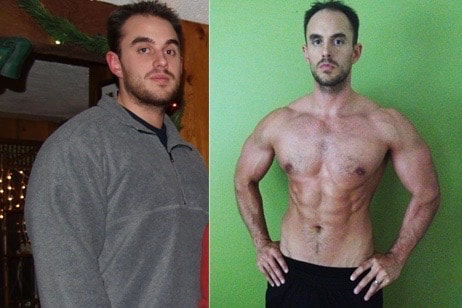
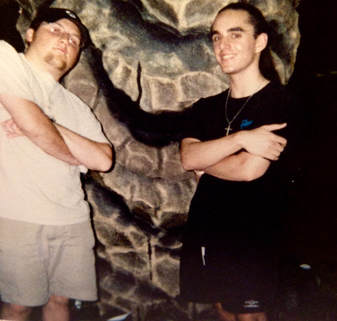
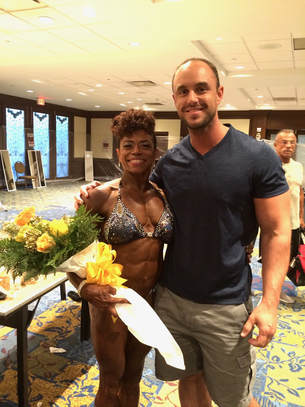
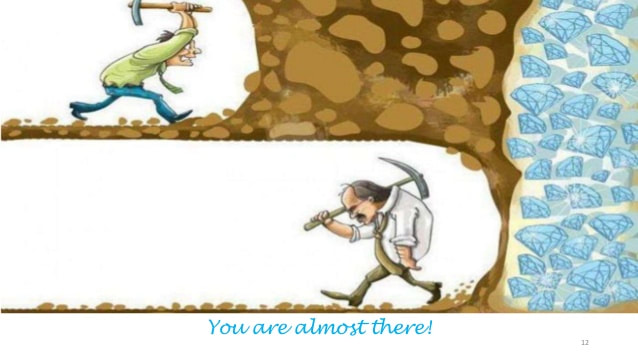
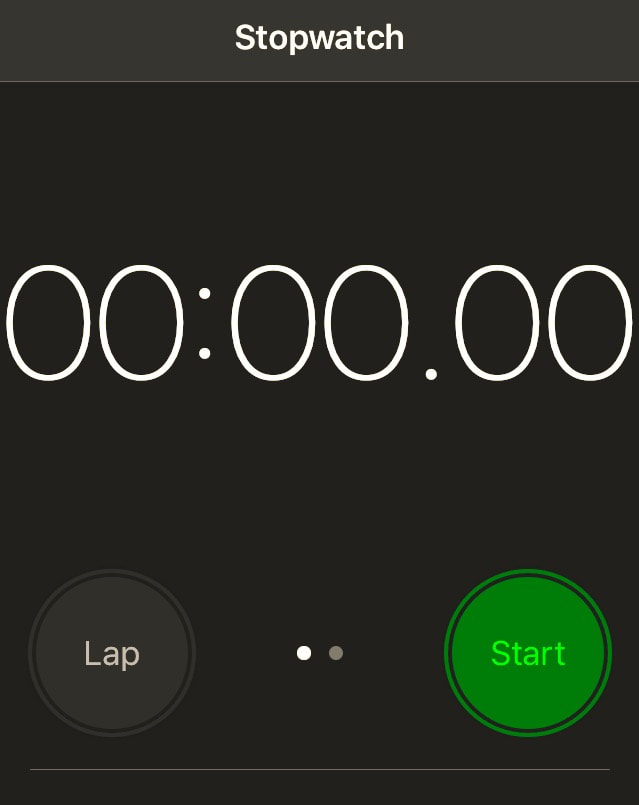
 RSS Feed
RSS Feed
